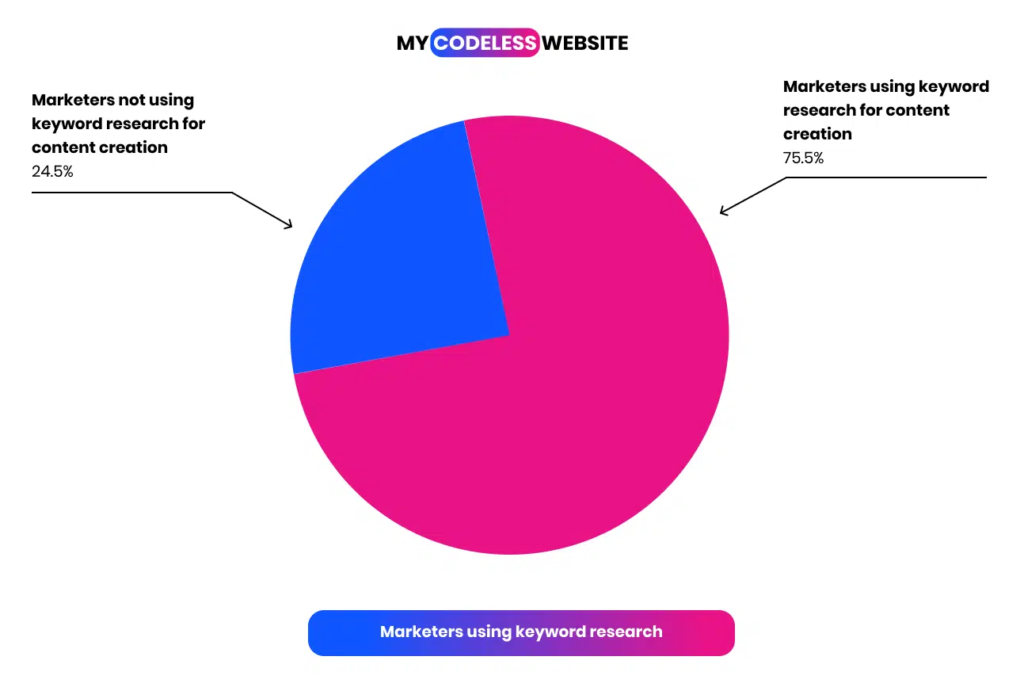Driving organic traffic is important for any website, and for many is often the primary channel for revenue generation. Search engine optimisation or SEO is the practice of using specialised, targeted techniques to improve a website’s visibility on search engine results pages (SERPs).
An effective part of any SEO strategy, keyword research is the foundation upon which you build and should be one of the first steps in the optimisation process. Simply put, keyword research is the process of finding and analysing key terms, words or phrases that people use to find things via search engines such as Google. Ensuring that this integral part of SEO is properly carried out can go a long way to defining your goals and increasing the chances of a successful SEO campaign.
How to Carry Out Keyword Research
In order to carry out keyword research effectively, two things are needed; a good knowledge of the industry and an understanding of keyword research tools and how they work. Here are some of the basic steps, terminology, and concepts of keyword research to help you carry out a robust research plan.
Types of Keywords
Focus Keywords – the phrase or word you want a specific page of your site to rank for or be found for in Google.
Long-tail Keywords – these are less common, more specific than the focus keywords, and are often longer. Because of this, they tend to have less people searching for them, but they are also easier to rank for and can still be worthwhile.

Keyword Brainstorming
The starting place will depend on what you are optimising, whether it’s just for one specific page or a whole website but will generally follow the same path.
Kicking off the process, you will need to come up with relevant topics, ideas, or seed/focus keywords that you think are important to your business and that potential audiences might use to search for your specific services, products, information, organisation, or business type.
For example, if you run an online golf shop then ‘golf clubs’ or ‘golf bags’ might be amongst some of your seed keywords.
Keyword Tools
These terms can then be plugged into a keyword tool such as Google Keyword Planner or Moz’s Keyword Explorer, which will analyse the keywords and provide helpful data including search volume, organic CTR, and difficulty ratings.
Not only do they supply these very helpful metrics, but they generate an abundance of relevant, useful keyword ideas related to those you entered, allowing you to discover a whole host of keywords you hadn’t thought of.
Assess the Metrics
Using the data provided, you can see if anybody is searching for your terms and take it from there to narrow it down to those that will fit your strategy. For example, if you are a relatively new or small online golf shop, then the term ‘golf clubs’ will likely have a very high number of searches and be very competitive to try to rank for. However, something like ‘golf clubs for beginners’ or ‘best golf club sets’ will probably have fewer searches but give you a greater chance of being able to compete in the rankings.
Understand User Intent
When it comes to narrowing down your keywords, you need to take a look at the user intent and what that might be so that you don’t waste time and effort on terms that aren’t going to yield the desired conversions.
For example, a term such as ‘types of golf clubs’ can be interpreted as being more informational and will likely have less click-through rates and conversions than a term such as ‘buy golf clubs online’ which is transactional in its intent.

Create a Spreadsheet with All Relevant Keywords
As you go through, find, and analyse keywords, you should add them to a spreadsheet along with long tail, variants, and search intent. It can also be helpful to colour-code them based on competitiveness to give you a simple visual as to what keywords might work when reviewing the information.
For example, in the focus keyword column, it might say ‘golf clubs’ which will be red as it’s very competitive, then in the next column (long tail and variants), it might be ‘best golf clubs 2024’ which could be yellow or green depending on its competitiveness.
This is an efficient, simple, and helpful way to collate information and track key terms for you to assess and use at a later date.
Determine Your Keyword Strategy
Based on the keywords and associated data collected in your spreadsheet, you should have everything you need to create an effective keyword strategy.
One way to do this is to think about the website pages you are going to optimise and match keywords to them that are the most relevant and will match the search intent. This can then be used to create high-quality content for that page which will include the chosen key phrases.
Why is Keyword Research Important?
Taking the time to do proper keyword research is essential for any successful website that wishes to gain relevant organic traffic and ensure that potential customers can find them online. Just some of the many reasons why keyword research is so important include;
- Finds keywords that are best to target
- Ensures that there is a search demand for the keywords you are optimising for
- Helps businesses to prioritise ranking opportunities
- Tells you what your target audiences are actually searching for
- Increases the chance of ranking higher in search engine results pages (SERPs)
- Helps to create high-quality, relevant content around the keywords
- Gain more valuable traffic to your site
- Provides insight into current marketing trends that can be used to create new content around


